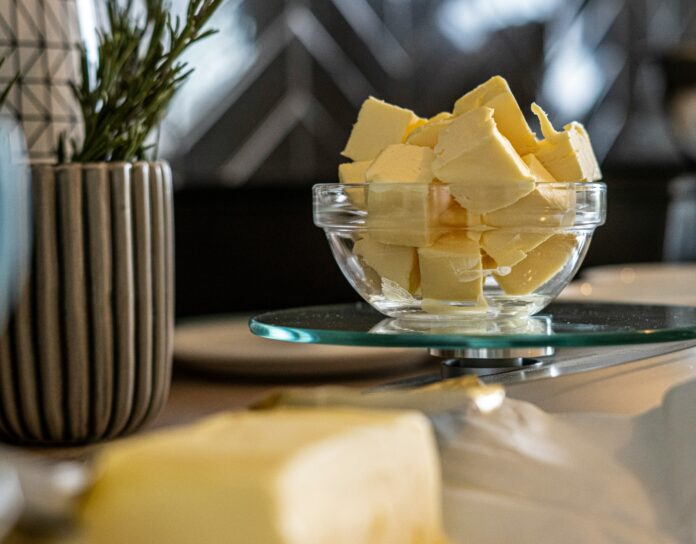The choice between using butter or oil can significantly impact the taste and texture. But which should be used when? Both fats have their unique properties and bring distinct flavors to the table. Let’s take a look.
Butter
Butter has a rich, creamy taste and the depth it adds to dishes. Butter is best in recipes where you want to feel the flavor, such as cookies, pastries, and cakes. It can also be great for stovetop dishes that require a rich buttery taste like risotto, seafood, or even some vegetables. And finally, incorporating butter at the end of cooking to enrich sauces, melt over steaks, or finish pasta dishes for a velvety texture is a great way to go.
Oil
Oil, on the other hand, is great for frying, searing, or stir-frying. Opt for oils with high smoke points to avoid burning and imparting off-flavors. You can also use neutral oils in dishes where the taste of butter isn’t necessary, like in marinades, vinaigrettes, or when cooking Asian cuisines. The butter wouldn’t really add much to the dish.
Final Thoughts
Don’t be afraid to experiment. In fact, sometimes, using a combination of both can offer the best of both worlds—flavor from the butter and the high smoke point of oil.















